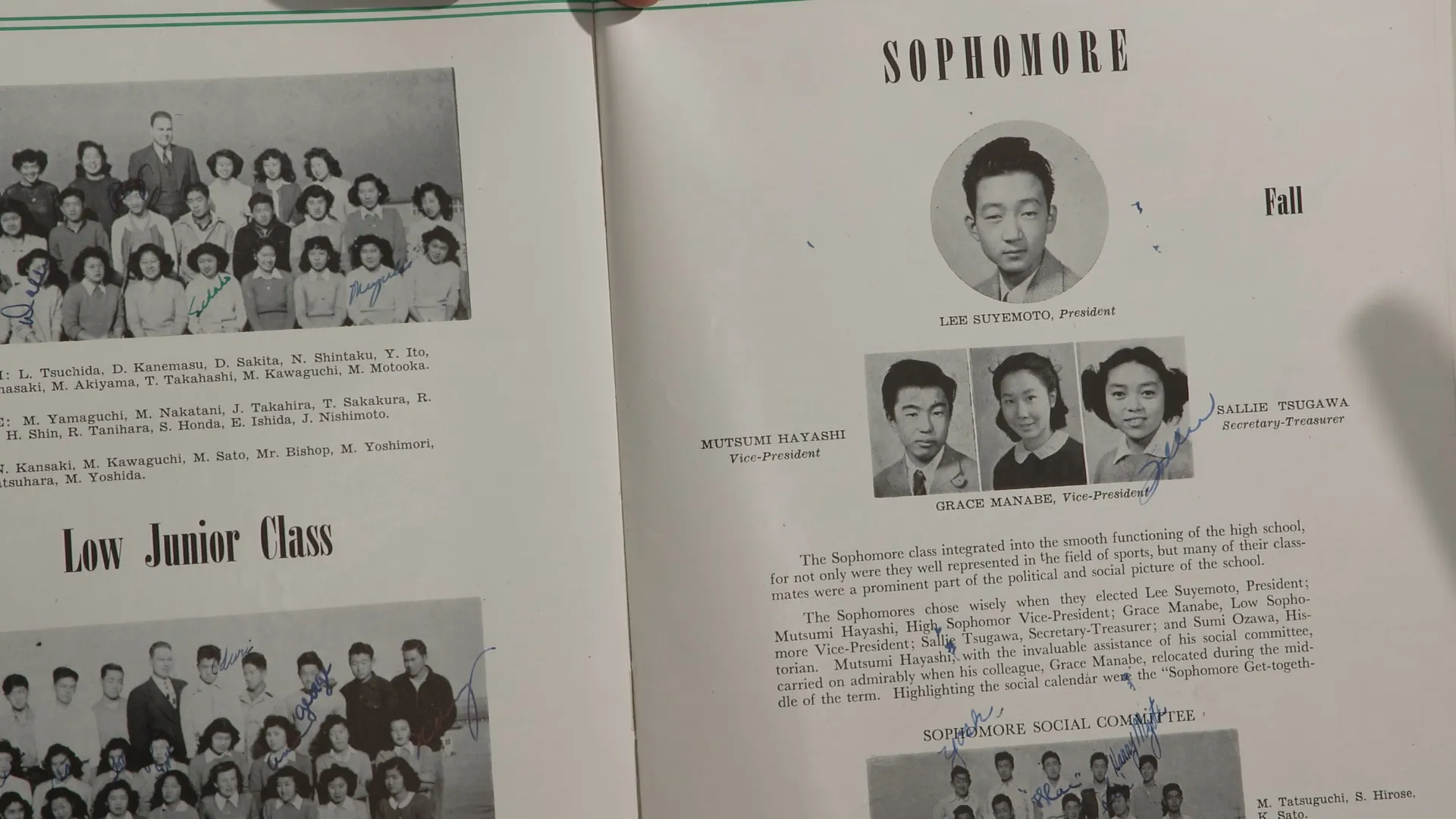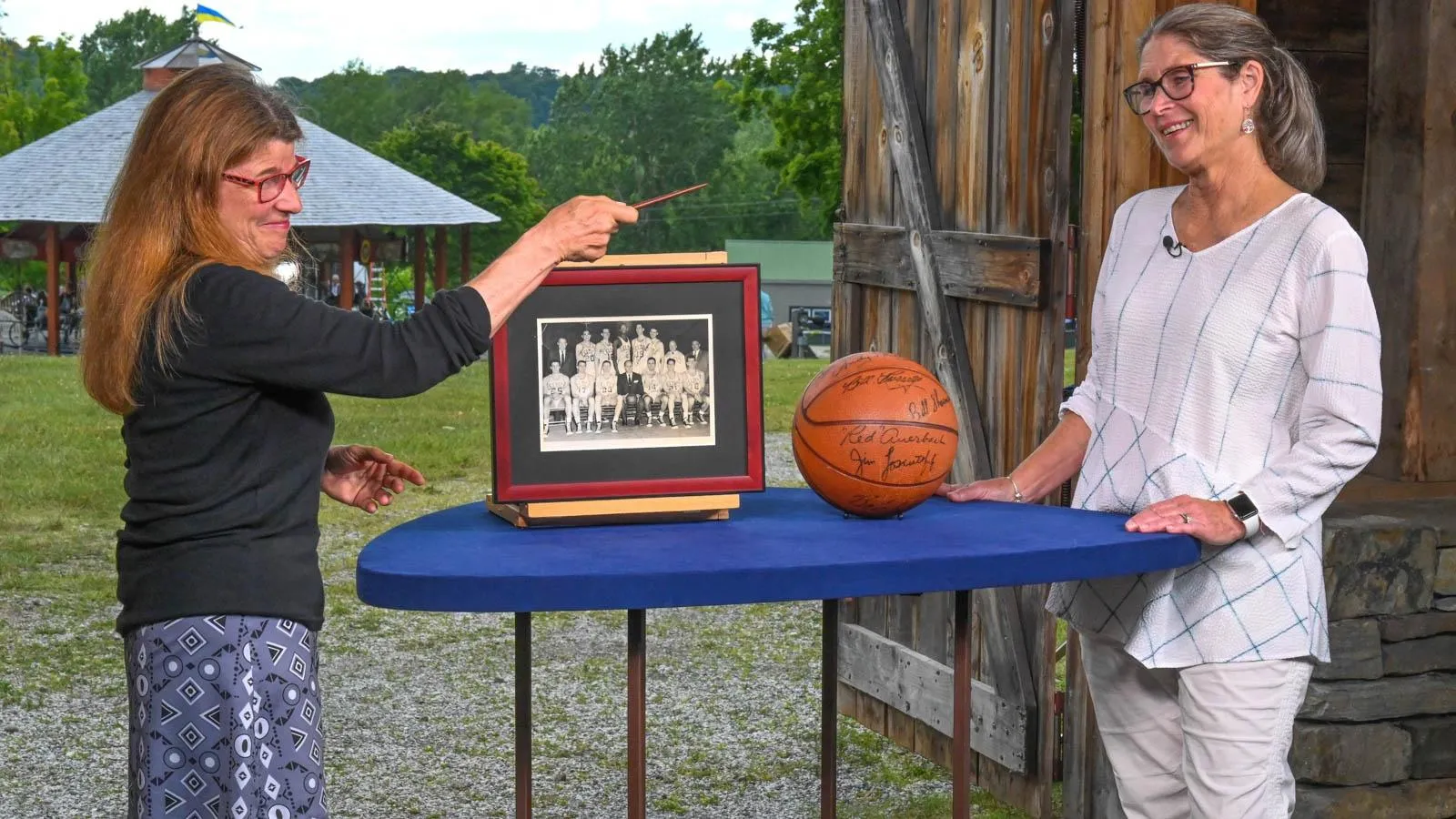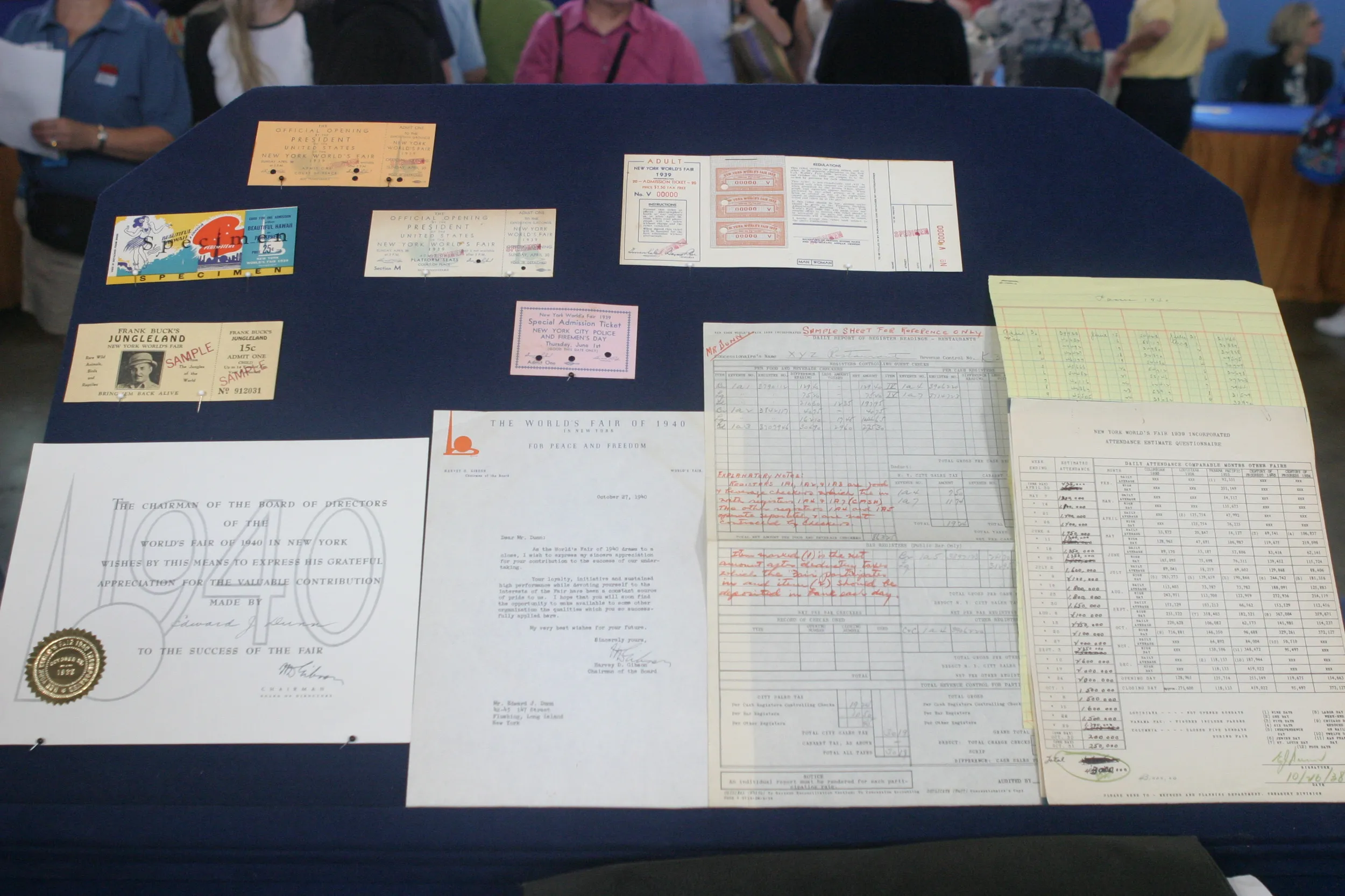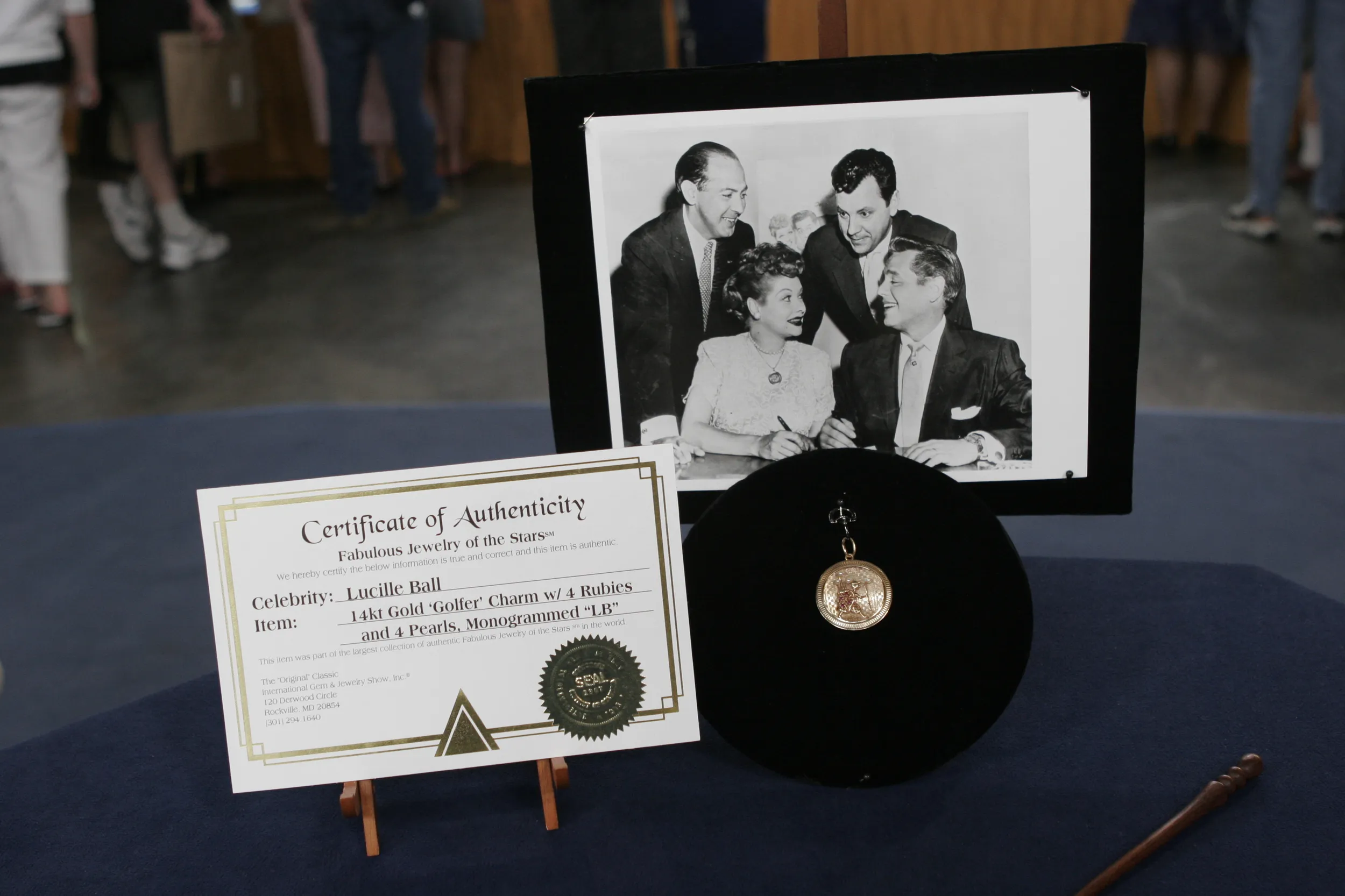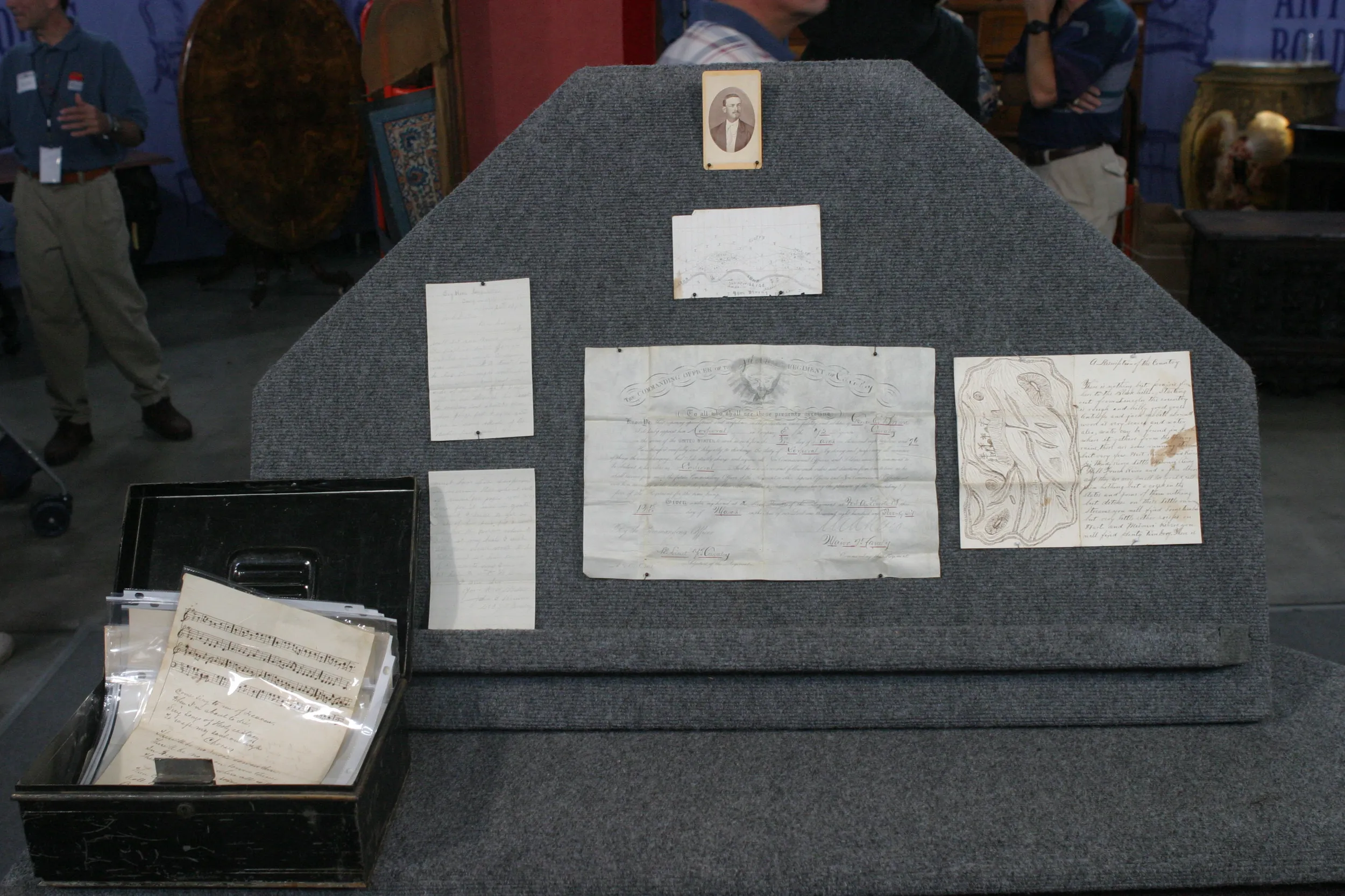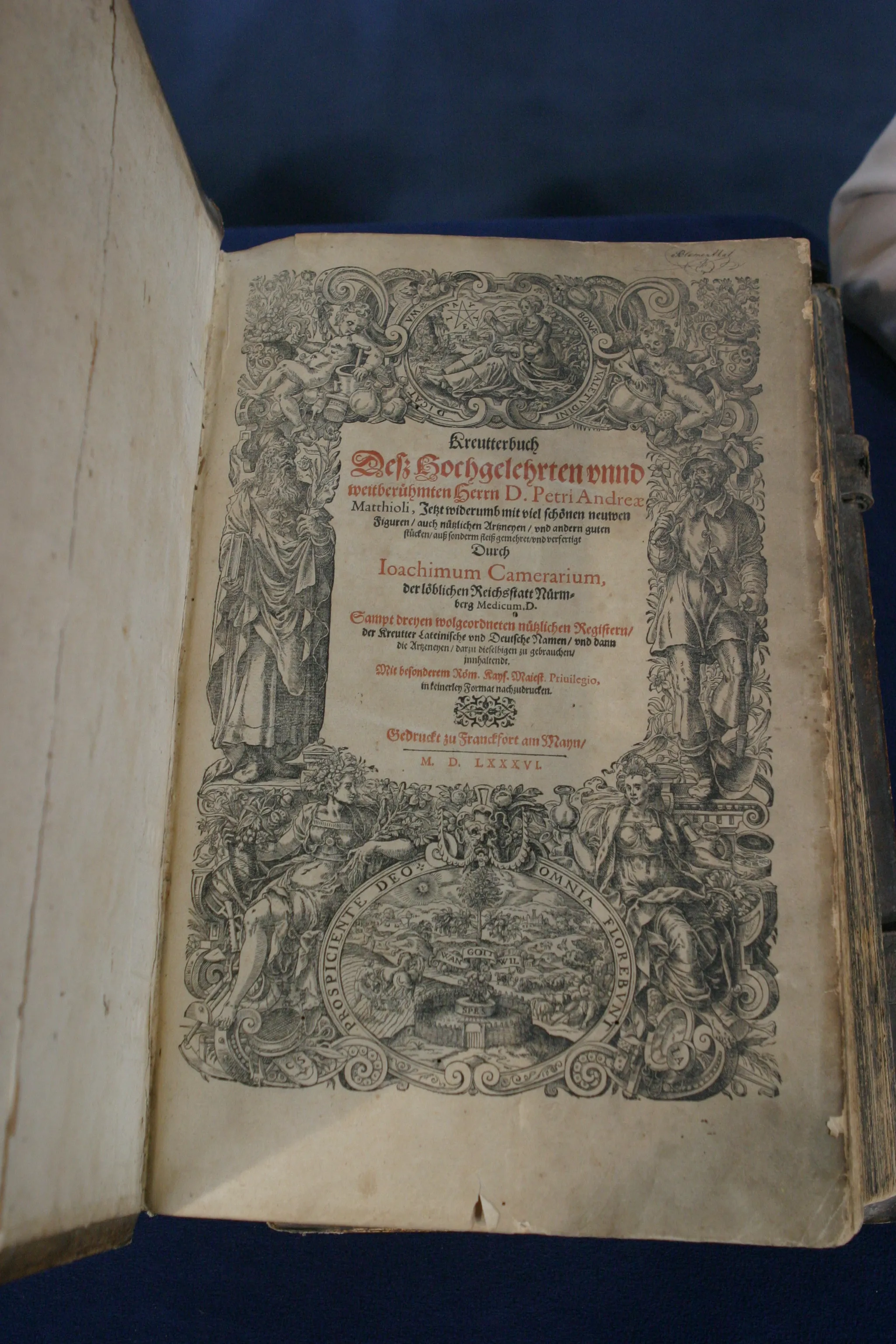GUEST: This is my father's yearbook, although not for the year that he graduated. So he was a sophomore, um, in this yearbook. And it is a yearbook from Topaz Camp in, uh, Delta, Utah, which is one of the Japanese American concentration camps from World War II. So my father was in camp from age 13 to age 16. So this is the, I believe, the book of the last year before they were released.
APPRAISER: How did all of that come about for his family, and...
GUEST: They were living, um, in Northern California, in Berkeley, when, um, the executive order came. They were, uh, evacuated with what they could carry. And so they went first to Tanf, uh, to Tanforan, which was a, formerly a racetrack. The families were put in the horse stables for temporary while the camps in, inside, like Topaz, was built. And then, um, they went by train to Topaz in Delta.
APPRAISER: It looks like your typical high school yearbook, and it's so much different than that. It looks very normal. I think one of the tragedies of this is, it looks so normal and typical. On the endpapers, you see what the camp looked like. What are all the signatures?
GUEST: These were, uh, uh, friends, classmates, that were wishing him luck and good wishes, and just... Probably what your high school yearbook looks like, too, I... (chuckles) (laughing): What my high school yearbook looks like.
APPRAISER: Yeah, yeah, yeah.
GUEST: Only not with that picture.
APPRAISER: Tell me what this page is.
GUEST: This is my dad, here. This is the sophomore class page. And my father was class president. From what I heard of what he was like when he was in high school, I mean, he was a leader, clearly. He was also a bit of a, a firecracker. He's told me a story of, like, leading a, a walkout, actually, from the high school at, in Topaz because of the way they were teaching history.
APPRAISER: We've pu, picked out one other, uh, pamphlet, and, because you felt that there was some in there that sort of typified what the real feeling about this was. Read in, in the, the paragraph that we're talking about.
GUEST: "In recognition of the fact that many alien-born evacuees are prevented from being loyal American citizens by legal technicalities, and that some individuals who legally are American citizens actually are sympathetic to Japan in the present war, the process of segregation will be conducted without regard for citizenship." I find somewhat ironic the part that says, "Some individuals who legally are American citizens actually are sympathetic to Japan," because there, there's no evidence in, in history that, of any Japanese Americans being traitorous in any way. During the war, you, you could, um, leave camp before the war ended if you were sponsored east. And so, my, um, aunt and uncles were sponsored to Cincinnati to go to, um, college and university. And so when the war ended, my father, who was 16, and his-- the, the parents and the remainder of his family were still in camp-- went to Cincinnati. He completed high school in Cincinnati, and he became a mathematician. I think, also, and my dad talked about it, that camp had a real effect on him. That he came out of camp, and... And he didn't... Like, the way he talked about it is, he didn't really know how to interact with people, um, in a... In a wider society, because of the effect. And so I'd never thought of him as, like, a really social person or even, like, a protest leader.
APPRAISER: Items from those camps do show up on occasion.
GUEST: Really?
APPRAISER: Uh, but I've never seen a yearbook, uh, from it. I've never seen that pamphlet. Putting these two together, I would say a value of $500 to $1,000 retail.
GUEST: Oh.
APPRAISER: I mean, where are you going to get another yearbook like this? It, you touch it, and you can almost feel the emotion.
GUEST: Mm-hmm, yeah. I mean... I really didn't think it was going to be worth anything, really. It's worth a lot to me, but, um... But it's really the story. In some ways, it's kind of nice to know that maybe other people will feel that story, too, and, and that that's reflected in the value. I know lots of people say this, but it's priceless to us, and so it'll just pass in the family.
APPRAISER: It's something that we should all learn and know more about, and this sort of leads you into it.
GUEST: Thank you.

